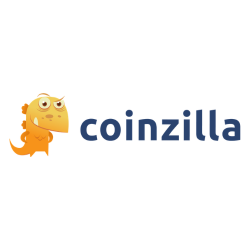With the rise of data privacy laws such as the General Data Protection Regulation (GDPR) in Europe and the California Consumer Privacy Act (CCPA) in the U.S., marketers are expecting major changes to data access and their ability to deliver ad experiences, according to a recent study by Proximic. Specifically, 88% of respondents believe privacy laws will have a moderate to significant impact on the ability to deliver personalized advertising.
“There are now 11 states that have some form of privacy regulation applied to them,” said Rachel Gantz, managing director of Proximic by Comscore. “With the state by state approach… this has become a little bit of a challenge, given the differential nature in which these regulations are being rolled out for folks to navigate.”
The “State of Privacy in Advertising” study evaluated survey results from more than 200 advertising decision-makers across agencies, publishers and brands. The survey was conducted between July 11 and July 21. The intention of the survey was to evaluate how respondents are reacting to changes in the data privacy landscape.
Privacy, demystified
The privacy landscape continues to be extremely fragmented, especially in the U.S. where there is no federal data law. This has created a complex reality for advertisers as they attempt to fall in line with regulation without sacrificing efficacy. Most advertisers (61%) believe audience targeting will bear the brunt of the impact, per the report.
A shift in the advertising space as a result of regulations is already taking place. Over half of respondents (60%) have adjusted their targeting strategies to accommodate privacy laws while 56% said their overall digital strategy has been impacted. Additionally, nearly half of survey respondents (47%) indicated they have adjusted the number of data partners they work with.
“I think the shift towards privacy has only increased the desire for accurate… measurement. We've seen that this is all happening simultaneously with CTV surges, with budgets being shifted to programmatic channels,” said Gantz.
Agencies are also more proactive when it comes to preparing for data privacy changes, according to the report. For example, agency respondents were more likely to say they were adjusting their targeting strategies (64%) compared to non-agency respondents such as publishers and brands (54%). Among non-agency respondents, 15% also indicated they were unsure of the impact of privacy laws on overall digital marketing, compared to just 5% of agency respondents.
The future of data compliance
Complying with changing privacy laws has not been easy for advertisers. Approximately 40% of respondents reported limited audience data available in selected regions, while 38% reported difficulty in keeping up with the implications of each new law. Costs are also impacted, with 31% of advertisers experiencing an increase in costs due to changing privacy laws, according to the report.
Advertisers have taken various measures to comply with the new data and privacy laws, including 59% who have reevaluated their data sets to ensure they comply. Over a quarter, 28% of respondents, invested in new tech such as data clean rooms while 13% hired additional guidance. However, 27% have not implemented any new measures.
When it comes to solutions, AI is one potential answer that advertisers are considering. In fact, only 7% don’t see AI playing a role in targeted advertising.
“Consumer protections, consumer privacy, that is really front-and-center for every single brand,” said Gantz. “What we're observing is that the desire for cookies, or no cookies, has really shifted to adopting these privacy centric technologies and allowing things like AI, contextual technologies, to be more front and center.”














